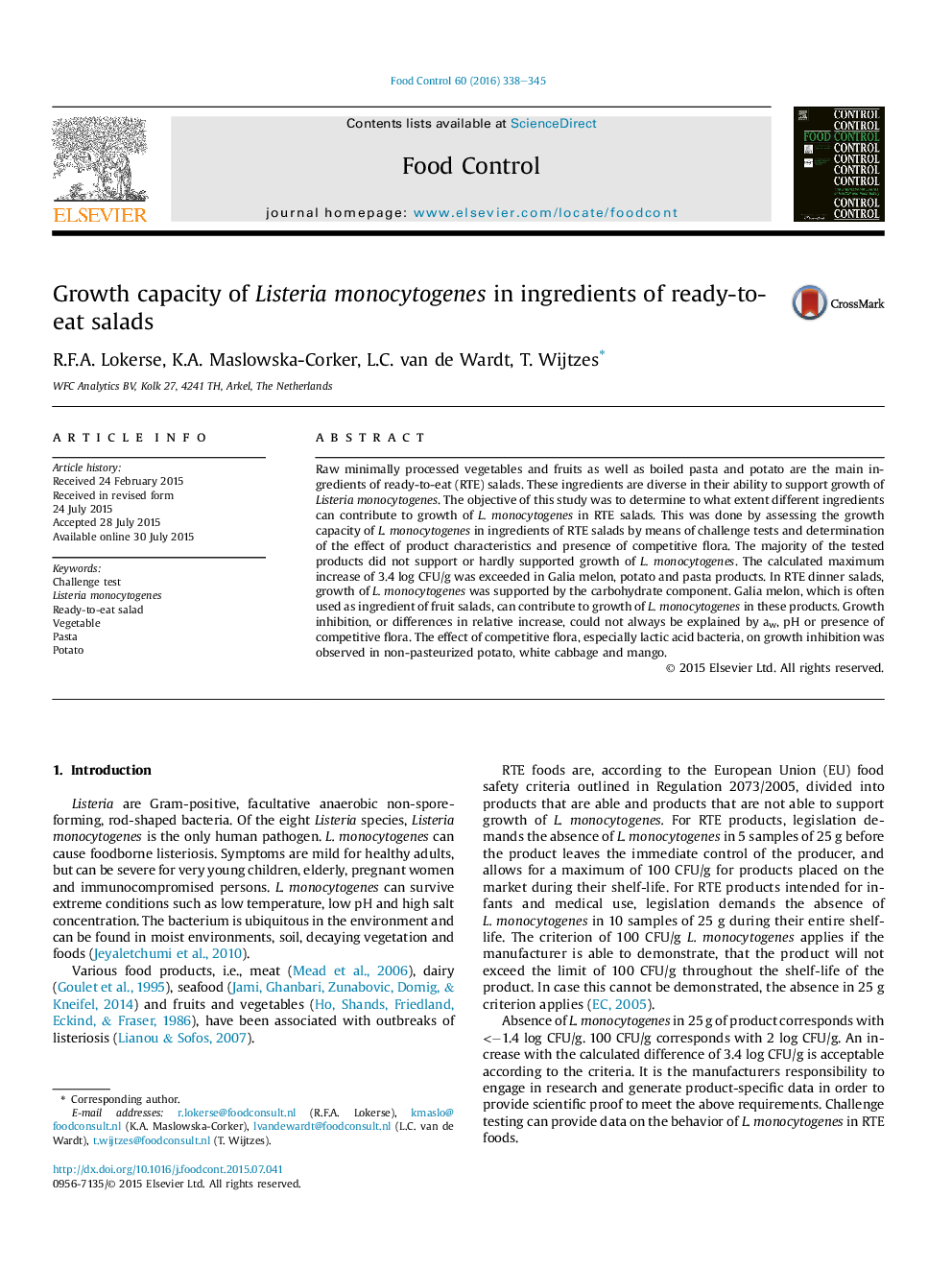| Article ID | Journal | Published Year | Pages | File Type |
|---|---|---|---|---|
| 6390285 | Food Control | 2016 | 8 Pages |
â¢Listeria monocytogenes challenge tests were performed on ingredients of ready-to-eat salads.â¢Vegetables do not support growth of L. monocytogenes as relative increase is <3.4 log CFU/g.â¢Galia melon is the only fruit tested that supports growth of L. monocytogenes.â¢Several boiled potato and pasta products do support growth of L. monocytogenes.
Raw minimally processed vegetables and fruits as well as boiled pasta and potato are the main ingredients of ready-to-eat (RTE) salads. These ingredients are diverse in their ability to support growth of Listeria monocytogenes. The objective of this study was to determine to what extent different ingredients can contribute to growth of L. monocytogenes in RTE salads. This was done by assessing the growth capacity of L. monocytogenes in ingredients of RTE salads by means of challenge tests and determination of the effect of product characteristics and presence of competitive flora. The majority of the tested products did not support or hardly supported growth of L. monocytogenes. The calculated maximum increase of 3.4 log CFU/g was exceeded in Galia melon, potato and pasta products. In RTE dinner salads, growth of L. monocytogenes was supported by the carbohydrate component. Galia melon, which is often used as ingredient of fruit salads, can contribute to growth of L. monocytogenes in these products. Growth inhibition, or differences in relative increase, could not always be explained by aw, pH or presence of competitive flora. The effect of competitive flora, especially lactic acid bacteria, on growth inhibition was observed in non-pasteurized potato, white cabbage and mango.
